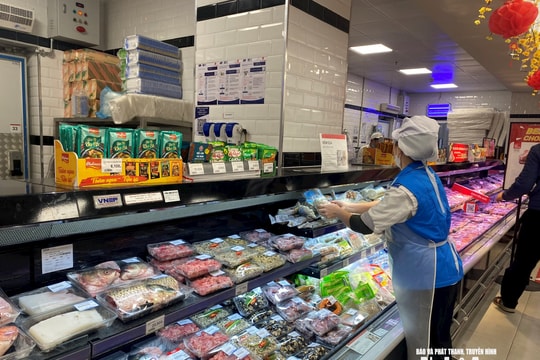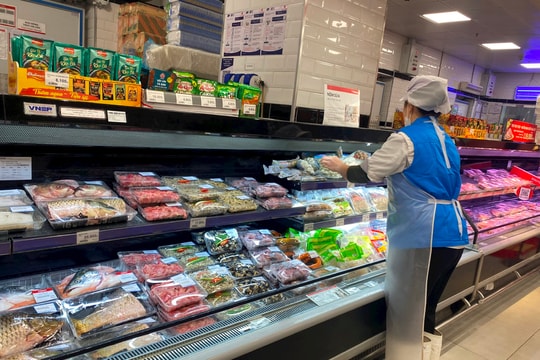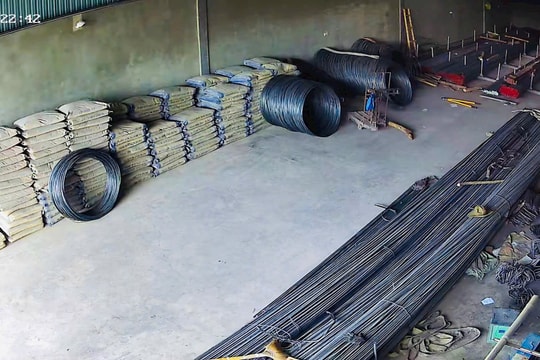No increase in electricity prices, control consumer price index at below 4%
From now until the end of 2018, the Government is determined to control the average consumer price index growth rate at below 4% according to the target set by the National Assembly.
Minister Dinh Tien Dung, Deputy Head of the Steering Committee for Price Management, has just signed Notice No. 403/TB-BCĐĐHG announcing the Conclusion of Deputy Prime Minister Vuong Dinh Hue - Head of the Steering Committee for Price Management at the meeting of the Steering Committee for Price Management on May 29.
According to the assessment of the Price Management Steering Committee, in the first 5 months of 2018, the consumer price index (CPI) in May 2018 increased by 1.61% compared to December 2017, the average for the first 5 months of the year compared to the same period in 2017 increased by 3.01%.
 |
| No increase in electricity prices, control consumer price index at below 4%. Illustration photo: KT |
CPI developments in the first five months of the year show that the price level has basically fluctuated relatively close to the forecast scenario. Factors causing price increases in the past two months mainly stemmed from price increases in some essential goods in the domestic and world markets.
From now until the end of 2018, although price management and inflation control continue to be under pressure due to the forecast that prices of some commodities on the world market will continue to increase, affecting domestic prices through import and export channels, the Government is determined to control the average consumer price index growth rate at below 4% according to the target set by the National Assembly.
Based on the agreed price management scenarios, ministries, branches and localities are required to continue to effectively implement the price management measures proposed at the beginning of the year in Notice No. 259/TB-BCĐHG dated March 30, 2018 of the Head of the Price Management Steering Committee on monetary and fiscal policy management; price management of essential goods; and review and completion of legal documents in the field of specialized price management.
Ministries and sectors must "manage" the prices of essential goods in their sectors.
The Deputy Prime Minister requested to maintain the price stability of State-priced goods in June 2018. Continue to review to accelerate the implementation of price reduction of goods with the potential to be reduced (such as medical services, medicines for people, medical supplies, BOT road use services, etc.). For goods with market prices that have tended to increase recently such as gasoline, food, pork, it is necessary to proactively review, balance supply and demand, and reasonably use the price stabilization fund to stabilize the market; focus on propaganda work, publicize and transparently disclose information on prices to control expected inflation.
Specifically, the Deputy Prime Minister requested the Ministry of Industry and Trade to coordinate with the Ministry of Finance to manage domestic gasoline prices according to regulations, use the price stabilization fund reasonably with appropriate doses, and proactively have response scenarios if gasoline prices increase to create favorable space for controlling the price level throughout the year.
The Ministry of Industry and Trade reviews input costs to manage electricity prices in accordance with the general price management scenario in 2018, thoroughly reducing costs so as not to have to adjust electricity prices this year.
The Ministry of Health will promote the organization of centralized bidding for national drugs with greater frequency and strengthen the management of bidding for medical supplies and equipment according to the direction in Notice No. 145/TB-VPCP dated April 18, 2018 announcing the conclusion of Deputy Prime Minister Vuong Dinh Hue at the working session with the Ministry of Health.
The Deputy Prime Minister also assigned the Ministry of Construction to closely monitor the price developments of construction materials and the real estate market, proactively propose measures to stabilize the market, ensure supply when the demand for construction materials increases, and proactively research solutions to use alternative materials to replace the use of sand in site clearance.
The Ministry of Natural Resources and Environment closely monitors the supply and demand developments and prices of land use rights markets in large cities, proactively proposing measures to stabilize the market when unusual fluctuations occur... ./.








